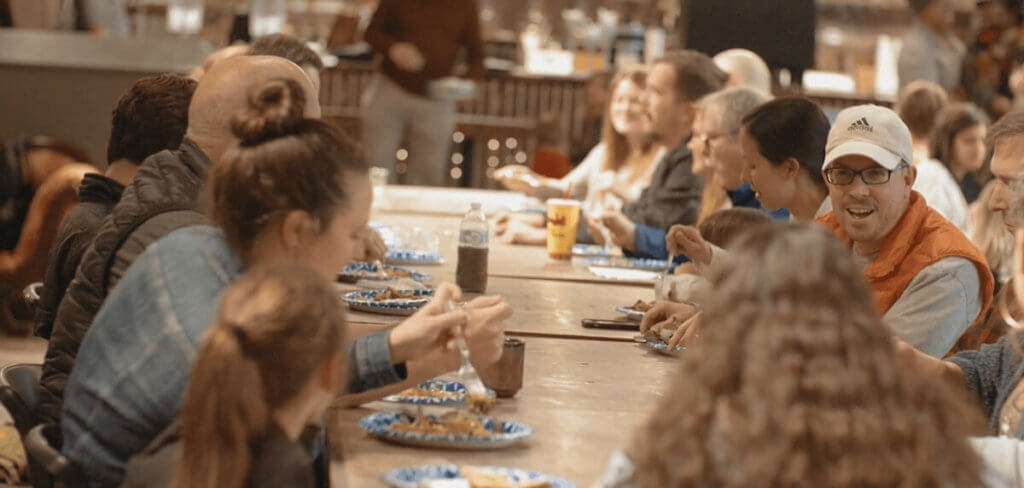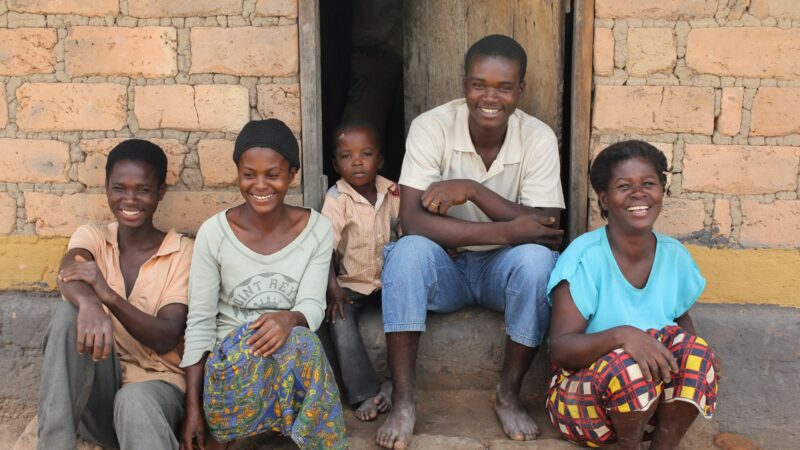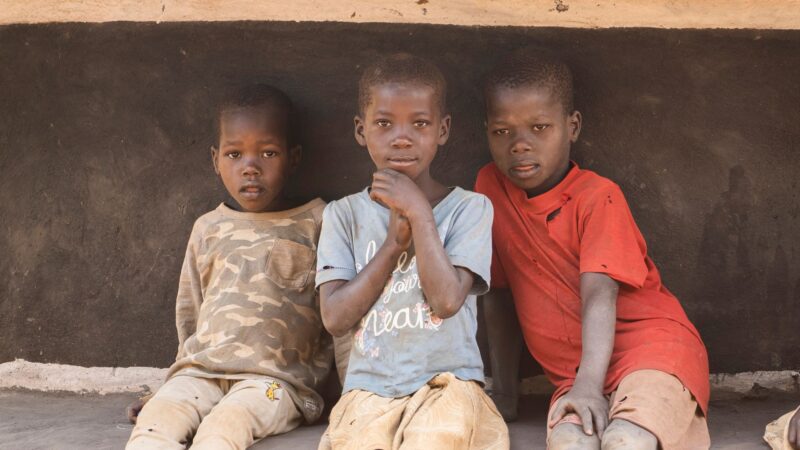*Guest blog post reprinted from the Chalmers Center article “Why Bother with the Local Church?”
Adapted from Becoming Whole: Why the Opposite of Poverty Isn’t the American Dream. Originally posted May 2019.
If you’ve read or heard much from the Chalmers Center over the years, you know that we are deeply committed to helping the local church to minister to people who are poor. In an era in which many have lost faith in the church, our commitment is unwavering. We believe it is impossible to truly alleviate poverty without her.
In our book, Becoming Whole, theologian Kelly Kapic and I unpack the reason for this conviction.
Our Great Hope
When we work with people living in material poverty, we are confronted over and over again with the effects of sin in the world—both individual behaviors and unjust systems contribute to poverty. The problems are often so complex that persevering in this work without the hope of Jesus’ return is nearly impossible.
Now stop and answer the following question: What do you think it will be like when Jesus comes again? Seriously, take a moment to jot down your answer.
If you are like me, your answer is probably something like this: There will be no more pain, sickness, hunger, or sin.
Note that I immediately thought of negative things that we will not experience some day: no more pain, sickness, hunger, or sin. It is true that we will no longer experience those things, but I skipped over the most important truth.
John records his vision of the new heavens and new earth as follows:
Then I saw a new heaven and a new earth, for the first heaven and the first earth had passed away, and there was no longer any sea. I saw the Holy City, the new Jerusalem, coming down out of heaven from God, prepared as a bride beautifully dressed for her husband. And I heard a loud voice from the throne saying, “Look! God’s dwelling place is now among the people, and he will dwell with them. They will be his people, and God himself will be with them and be their God. He will wipe every tear from their eyes. There will be no more death or mourning or crying or pain, for the old order of things has passed away. He who was seated on the throne said, I am making everything new! Then he said, “Write this down, for these words are trustworthy and true.” (Rev. 21:1-5; emphasis added)
My answer failed to acknowledge this astounding truth: The key feature of the new creation is that God will dwell again with His people! This is the key to ending poverty. This is the key to becoming whole. And this is why the local church is central to poverty alleviation. To understand these claims, we need to go back to the very beginning.
In the Beginning
Drawing on numerous passages from the Old and New Testaments, recent biblical scholarship has demonstrated that the garden of Eden functioned like a temple.1 The center of the garden was analogous to the Holy of Holies in Israel’s temple. As such, it was an “enchanted” place, a place both natural yet saturated with the supernatural, a place where God dwelt with us, a place filled with His presence, and a place from which He ruled. God was so present in this place, so present in this material world, that Adam and Eve could actually hear God as He “was walking in the garden in the cool of the day” (Gen. 3:8).

In this light, the garden of Eden was far more than just a place where Adam and Eve watered plants and cared for animals.
It was a temple-garden in which the first humans served as priests and rulers.2 As priests, they were to protect the “temple” from any corruption and lead others into worship of the one true God. As rulers, they were to promote the welfare of others and the rest of creation by ruling as God’s vice-regents, His assistant rulers. As priest-rulers, then, humans were to lovingly serve God, others, and the rest of creation. And they were to see themselves as participants within the matrix of worship and love. So, a healthy view of “self” was also part of the original design.
In summary, enjoying loving relationships with God, self, others, and the rest of creation is what human flourishing entails. This is what it means to be whole.
Note that God actually wired human beings for such flourishing. The human creature is designed in such a way that our entire being “body and soul” is intricately created to enjoy these loving relationships. The human being is a highly-interconnected, body-soul-relational sort of creature.
Thrown Out of the Dwelling Place of God
Unfortunately, Adam and Eve sinned and were banished from the Garden of Eden. This wasn’t just a change of their mailing address. Adam and Eve were created to live in God’s dwelling place, so being thrown out of the garden undermined their ability to fully experience humanness. And because the human being is an interconnected whole, this broken relationship with God reverberated through their entire being, damaging their bodies, souls, and other relationships as well.
Because of this, human beings are fundamentally broken, so the cultures we create are necessarily broken as well. And at the foundation of this brokenness is that human beings need to be returned to the dwelling place of God. Whether we realize it or not, all of us—both rich and poor—long to return to God’s presence. This is what we are all longing for. It is for this that we were created.
Back to the Future
The vision John relates in Revelation is of Eden restored.3 In the garden-temple of Eden, a river flowed from God’s presence, watering the earth, including the Tree of Life. Similarly, in the coming temple in the new heavens and new earth, a river flows from the throne of God, watering the new creation, including the Tree of Life (Rev. 22:1-2, Ezek. 47:1-12).
Now, when we say that the future is a restored Eden, we do not mean that it is simply a return to the primitive state of Eden—the days before there was any culture. The Bible passages quoted above state that at the center of the new creation is a city, the New Jerusalem, that will include portions of this world’s culture(s): “The kings of the earth will bring their splendor into it” (Rev. 21:24). We are not going from a garden to a garden. Rather, we are going from a garden to a city. And in that city, as in the garden of Eden, God will once again dwell with His people in a world without sin.
And who will we be in the new Eden, in the new temple where God dwells again with His people? Consider how the Bible describes God’s people there:
You have made them to be a kingdom and priests to serve our God, and they will reign on the earth (Rev. 5:10, emphasis added).
Believers will be restored priest-rulers, worshiping God and ruling with Him in the temple at the center of the new heaven and new earth. Just as human beings were created to do in the very beginning.
So, what?
So, what does all this have to do with poverty alleviation? Everything!
You see, being priest-rulers who live in God’s dwelling place and extend His presence wasn’t just something for the ancient past, something for Adam and Eve. And it isn’t just something for the very distant future, when Christ returns again.
You see, Jesus Himself is the temple, and as His body, bride, and fullness, the local church—your local church—is a place where God dwells with His people in a special way (I Cor. 3:16-17). While we still await the full realization of God dwelling with His people at the second coming, the local church is that dwelling place transported back from the future into the here and now. Our corporate participation in a community of worship, love, forgiveness, grace, and laughter is an anticipation, a real taste of the future, breaking forth into the present.

And because God dwells there, His people are restored to humanness. To being the priest-rulers we were created to be, not just in the future, but right now!
But you are a chosen people, a royal priesthood, a holy nation, God’s special possession. That you may declare the praises of him who called you out of darkness into his wonderful light (1 Peter 2:9, emphasis added).
God’s desire for all people—including the panhandler, the little girl sold into the brothel, and even the brothel owner himself—is to restore us as priest-rulers, image-bearers who dwell in God’s presence and who extend His reign throughout the whole earth. And such restoration is nurtured in God’s dwelling place in this broken world: the local church. This is where human flourishing begins for all of us, including people who are poor.
Is your church welcoming people who are poor back into the very dwelling place of God?
- See, for example two works by Gregory K. Beale, The Temple and the Church’s Mission (Downers Grove, IL: Apollos IVP, 2004), 66-80, and New Testament Biblical Theology: The Unfolding of the Old Testament in the New (Grand Rapids: Baker Academic, 2011), 617-22.
- See Gregory K. Beale and Mitchell Kim, God Dwells Among Us: Expanding Eden to the Ends of the Earth (Downers Grove, IL: InterVarsity Press, 2014) and J. Richard Middleton, A New Heaven and a New Earth: Reclaiming Biblical Eschatology (Grand Rapids: Baker Academic, 2014).
- Ibid., 21.




